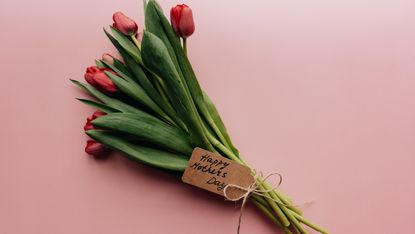2023 Mother’s Day gifts: 30 presents and experiences
Pick out the perfect present to give to your mum on Sunday 19 March

Mother’s Day is celebrated all over the world at different times of the year. In the United States, the annual celebration of “moms” takes place on the second Sunday of May, while in France the Fete des Meres falls on the last Sunday of May. In the UK, however, Mothering Sunday is held on the fourth Sunday of Lent – 19 March in 2023.
What is the origin of Mother’s Day?
The first ever movement for the recognition of motherhood arose from the groups for women whose sons had fought in the American Civil War. In 1914, President Woodrow Wilson decreed the second Sunday of May as Mother’s Day. It spread to Europe in the aftermath of the First World War, when many women had lost their sons or husbands, leaving them to raise their children alone.
Most countries adopted the US timing and it still remains the most popular date for Mother’s Day across the globe. The origins of the British date are a little more complicated. Some believe Mothering Sunday originally derived from a 16th-century practice of visiting the “mother church” - the main church in the region - on Laetare Sunday, the fourth Sunday of Lent. This was also when domestic servants were given time off to visit their families.
Subscribe to The Week
Escape your echo chamber. Get the facts behind the news, plus analysis from multiple perspectives.

Sign up for The Week's Free Newsletters
From our morning news briefing to a weekly Good News Newsletter, get the best of The Week delivered directly to your inbox.
From our morning news briefing to a weekly Good News Newsletter, get the best of The Week delivered directly to your inbox.
In 1920, inspired by the new US holiday, Briton Constance Smith published a booklet entitled The Revival of Mothering Sunday and by 1938, the day “was celebrated in every parish in Britain and in every country of the Empire”, church historian Cordelia Moyse told The Daily Telegraph. Today, it is more commonly referred to as Mother’s Day, but it is still officially known as Mothering Sunday.
Mother’s Day traditions
It was customary for people in Britain to cook their mothers a simnel cake – a type of light fruit cake with two layers of marzipan – on Mothering Sunday because it falls in the middle of Lent and so represents a relaxation of the fasting rules. For this reason, the day was also traditionally called Refreshment Sunday.
Simnel cakes, which are also associated with Easter, traditionally feature 11 balls of marzipan icing representing 11 of the 12 disciples (Judas is usually left out, except in extraordinarily forgiving Christian households). Today, gifts of flowers or chocolates are more usual.
Mother’s Day around the world
Many countries around the world have developed their own traditions for celebrating mothers.
Parts of India celebrate the Western version of Mother’s Day on the second Sunday in May. However, Hindus in India celebrate the goddess Durga, or Divine Mother, in October with a 10-day festival. Named Durga Puga, the festivities celebrate the triumph of good over evil which is symbolised through the exchange of gifts with family and friends.
Mother’s Day celebrations in Mexico take place on 10 May. Churches in Mexico hold a special mass in honour of Mother’s Day, which is often followed by a community breakfast. Some families hire mariachi bands to wake their mothers with a song on the special day.
Mother’s Day in Ethiopia is celebrated with a three-day celebration mid-autumn. This days-long feast is known as Antrosht. Children will often supply the ingredients for a traditional hash recipe that contains cheese, lamb, vegetables, butter and spices. The mother then prepares the hash. After the meal is finished, the mothers and daughters will ritually rub each other’s faces with butter. The rest of the night is spent with the family singing and dancing.
Create an account with the same email registered to your subscription to unlock access.
Sign up for Today's Best Articles in your inbox
A free daily email with the biggest news stories of the day – and the best features from TheWeek.com
-
 'Republicans want to silence Israel's opponents'
'Republicans want to silence Israel's opponents'Instant Opinion Opinion, comment and editorials of the day
By Harold Maass, The Week US Published
-
 Poland, Germany nab alleged anti-Ukraine spies
Poland, Germany nab alleged anti-Ukraine spiesSpeed Read A man was arrested over a supposed Russian plot to kill Ukrainian President Zelenskyy
By Peter Weber, The Week US Published
-
 Today's political cartoons - April 19, 2024
Today's political cartoons - April 19, 2024Cartoons Friday's cartoons - priority delivery, USPS on fire, and more
By The Week US Published
-
 Properties of the week: covetable ski chalets
Properties of the week: covetable ski chaletsThe Week Recommends Including homes in Verbier, Haute-Savoie and Monti della Luna
By The Week Staff Published
-
 Best new hotels and places to stay in 2024
Best new hotels and places to stay in 2024The Week Recommends Featuring stylish island resorts, historical properties and wilderness retreats
By The Week UK Last updated
-
 An Alpine ski tour from Andermatt to Engelberg
An Alpine ski tour from Andermatt to EngelbergThe Week Recommends The Urner Haute Route features some of the wildest terrain in the Alps
By The Week UK Last updated
-
 The 2024 travel bucket list
The 2024 travel bucket listThe Week Recommends Best holidays, adventures and experiences to book in 2024
By The Week UK Last updated
-
 Luxury in Lapland: how to meet Santa in style
Luxury in Lapland: how to meet Santa in styleThe Week Recommends From husky sleigh rides and tobogganing to searching for Father Christmas on a snowmobile
By The Week UK Published
-
 Island hopping in the Caribbean
Island hopping in the CaribbeanThe Week Recommends Barbados and Grenada offer different perspectives on paradise
By Rebekah Evans, The Week UK Published
-
 Borgo Pignano review: a taste of Tuscan tradition and nature
Borgo Pignano review: a taste of Tuscan tradition and natureThe Week Recommends Enjoy a retreat-like experience that's as relentlessly authentic as it is luxurious
By Dominic Kocur Published
-
 Finca Cortesin review: teeing off in style in Andalucia
Finca Cortesin review: teeing off in style in AndaluciaThe Week Recommends Pristine golf meets beach and spa paradise at the Solheim Cup host venue
By Alexandra Zagalsky Published